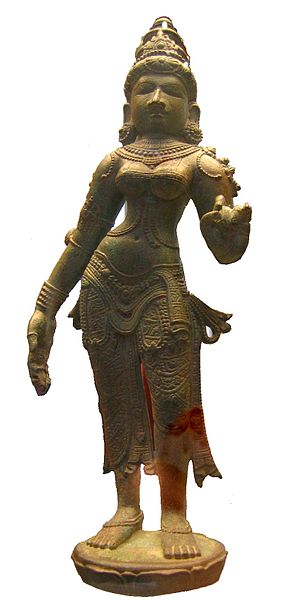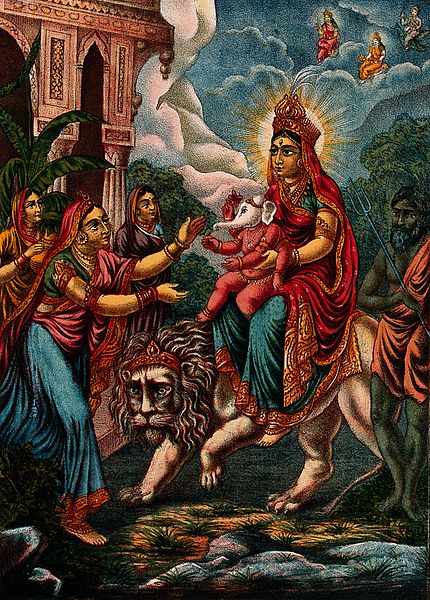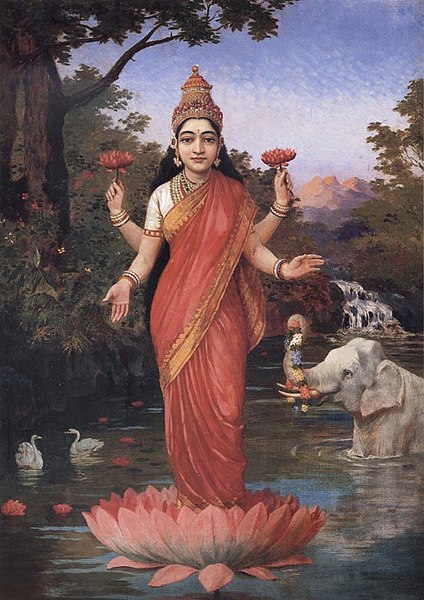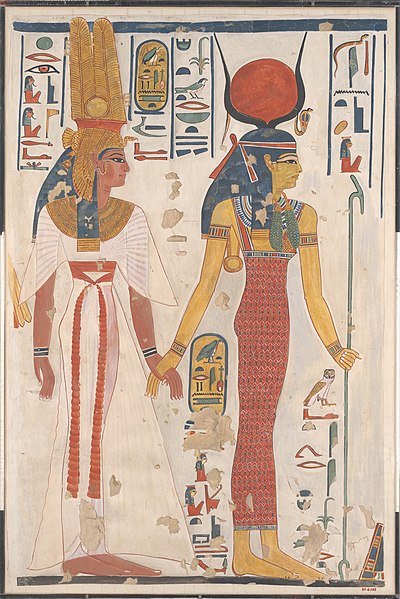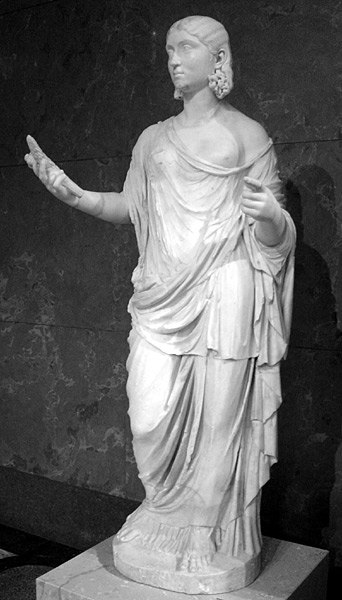Devī is the Sanskrit word for 'goddess'; the masculine form is deva. Devi and deva mean 'heavenly, divine, anything of excellence', and are also gender-specific terms for a deity in Hinduism.
A sculpture of the goddess Lakshmi
Parvati riding a lion with her son Ganesha
Lakshmi
Image of goddess Saraswati
A goddess is a female deity. In many known cultures, goddesses are often linked with literal or metaphorical pregnancy or imagined feminine roles associated with how women and girls are perceived or expected to behave. This includes themes of spinning, weaving, beauty, love, sexuality, motherhood, domesticity, creativity, and fertility. Many major goddesses are also associated with magic, war, strategy, hunting, farming, wisdom, fate, earth, sky, power, laws, justice, and more. Some themes, such as discord or disease, which are considered negative within their cultural contexts also are found associated with some goddesses. There are as many differently described and understood goddesses as there are male, shapeshifting, or neuter gods.
Queen Nefertari being led by Isis, the Ancient Egyptian mother goddess of magic
Portrait-Statue of an unknown woman as Ceres, Roman goddess of agriculture and motherly relationships
The goddess Freyja is nuzzled by the boar Hildisvíni while gesturing to Hyndla (1895) by Lorenz Frølich.
The Hindu warrior goddess Durga killing the buffalo-demon Mahishasura.

